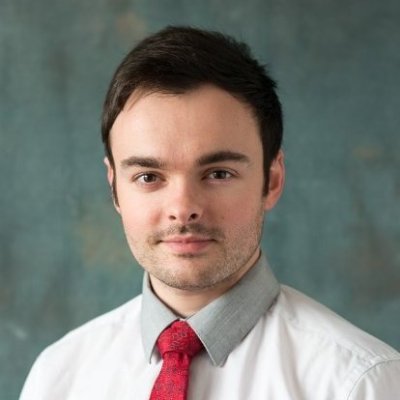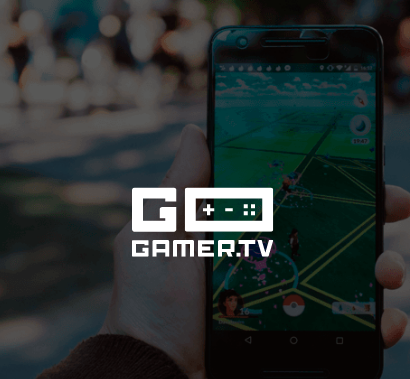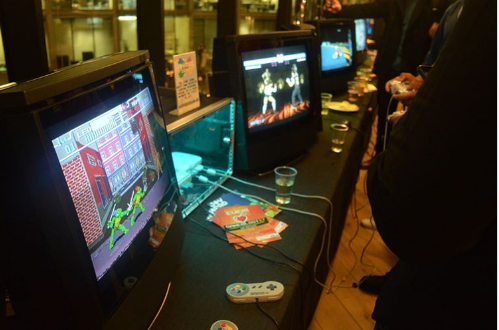Dingit.tv has undergone a significant transformation. Level Up Media is now the title of the parent company, with Dingit falling under this umbrella alongside new launches ‘The Gamer’ and ‘Go Gamer’.

Following a strong period of growth in 2016, Dingit.tv made a major decision to eliminate live streams from its platform. In doing so it opted to renounce tussles with the likes of Twitch and Facebook as it had been engaging in since launch in 2015.
Why the change? A significant pick-up in its video on demand, and particularly its short form content, suggested that there’s a gap in the market for curated content.
Dingit has come up with a new option for content creators too and it’s on a journey to sign up and reward the best content creators worldwide. Having already established partnerships with the likes of Splyce, HLTV and more it’s started well but there’s a long road ahead.
Following the Cannes Esports BAR, we sat down with Dingit.tv’s Head of Content and Marketing, Adam Simmons to talk curated content, esports opportunities and their events plans.
Esports Insider: A recent brand overhaul and expansion – Dingit grew at a considerable rate through 2016 – why have you introduced the two new brands?
Adam: We started out with live streaming video in 2015, but now we’ve pivoted. We’re not trying to be Twitch and we don’t want to be Youtube. We’re focused on purely premium content and shortform VOD with a licence fee model rather than revenue share. We’re at a different position in the market rather than competing with those already out there.
“We’re not trying to be Twitch and we don’t want to be Youtube”
As of now, Level Up Media is the parent company but Dingit will remain our flagship brand focused on esports and video.
The Gamer and Go Gamer will target different communities within gaming. We established these because we recognise that there are different audiences within gaming. For example The Gamer will be for those who wouldn’t necessarily watch competitive CS:GO, but they would watch a funny clip from GTA or Assassin’s Creed for example. Those that own a console but maybe wouldn’t identify as real gaming fans. 
Go Gamer meanwhile is focused on a younger audience; those that are playing and watching Minecraft and are there for the personalities. These viewers are watching for different reasons and they’re consuming different content. We want to create a destination and home for each of these groups to find what they love.
Esports Insider: Levelup is based in London..can the city become a formidable home for esports in Europe and how can we make this happen as an industry?
Adam: Where you look at the home of esports as a physical location, it’s easy to say it’s where the companies are. But the beauty of esports is that it’s global and not restricted to one location, especially with tournaments around the world, and at Level Up we’re connected with content creators around the world.
“For content creators, we offer a non-exclusive flat fee licence for their content. That means they can keep using other platforms to build their audience, but what we want to do is to curate the top content and give it a broader reach”
This is the wonder of the internet age. Of course somewhere fun to go locally is important too, and London is a great place to be right now and it’s getting better. There are events popping up all the time and there’ll be more emerging throughout the year.
Esports Insider: Why should content creators come to you?
Adam: For content creators, we offer a non-exclusive flat fee licence for their content. That means that they can keep using other platforms to build their audience, but what we want to do is to curate the top content and give it a broader reach.
“On the creator side we identified that creating great content is a different skillset, and we want to licence that whether the creator has one fan or a million. If the content is great we want it and we’ll know what to do with it”
This means creators minimise risk as they get the money up front, and we renegotiate these deals periodically to ensure they fairly reflect the quality and quantity of the content produced, and its reach.
One thing we want to do is split the content creation and the audience driving. We have two separate deals for that. When it comes to audience driving, we work with partners who have a demographic that’s interested in the content and we have a revenue share model based on the views generated.
On the creator side we identify that creating great content is a different skillset, and we want to licence that whether the creator has one fan or a million. If the content is great, we want it and we’ll know what to do with it.
Esports Insider: How do the deals you offer differ between established content creation teams and individuals?
Adam: From a content perspective we look at two things first as a benchmark; is it gaming content and is it entertaining?
What affects the price of the individual licence fee is the quality of the content; how well is it edited, how entertaining is it, is it funny, are a diverse batch of games included and whether we think it’ll be appealing to our audiences and our partners’ audiences too.
“The beauty of esports is that it’s global and not restricted to one location, especially with tournaments around the world, and at Level Up we’re connected with content creators around the world”
After the initial deal, we then review this periodically. So for example if our partners and audience is loving the videos from one creator, if it’s being viewed a lot and shared well, then we’ll look to reward that creator. We’ll do this by giving them more resources and expanding the breadth of that content too. Ultimately this’ll mean they can create better content and more of it.
Esports Insider: The company is growing and expanding into new territories and areas of business…one of these is events – can you tell us more about your plans here and where you see opportunity?
Adam: We held a test event at our offices last week and worked with Joypad, a retro gaming events organiser.

We want to work with local events, and larger scale more international events too, in various communities to ensure that everybody knows that we’re in it for the long run. Our viewership is predominantly in North America and Western Europe, but we’re always looking at new regions.
Right now, Latin America is exciting as is Asia. We’ve a quite sizable reach already but we want to expand, and how we react to these geos is largely connected to the local stakeholders we’re working with.
“We want to work with local events, and larger scale more international events too, in various communities to ensure that everybody knows that we’re in it for the long run”
It doesn’t matter to us where our content creators are in the world; we want to provide them with a platform that offers security and stability via the licence fee. As for our publisher partners it doesn’t matter either but it’s about the traffic they’re able to drive to our videos, and simply whether that content is appealing.

